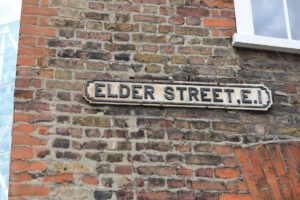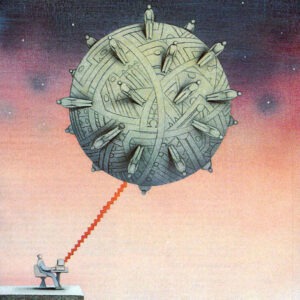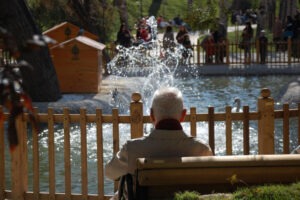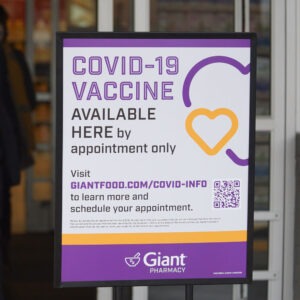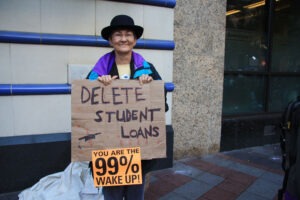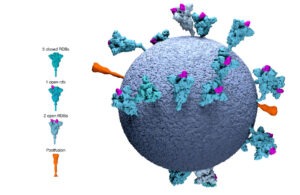
August 16, 2016; Chicago Tribune
The often-mysterious link between music and recovery from brain damage and memory loss has been apparent for a while. In 2010, astonished researchers studied MRIs of jazz guitarist Pat Martino’s brain. Martino’s 1980 brain surgery had removed much of his frontal lobe but had left his guitar-playing skills perfectly intact. According to most neuroscientists, Martino should have completely forgotten how to play the guitar; instead, researchers found, he “exhibited complete recovery from profound amnesia and regained his previous virtuoso status.” While the explanations for this miraculous recovery are less clear, it seems music can play an integral role in brain health, particularly when it comes to recovery from trauma and support for amnesia and memory loss.
One Midwestern symphony orchestra has decided to put neuroscience into practice and design concert experiences for those with various stages of memory loss, those most often associated with dementia. Lake Forest Symphony, a small professional orchestra that serves the northern suburbs of Chicago, joined forces with Lake Forest Place to design an outreach program for those experiencing memory loss. The fledgling program, which was launched eighteen months ago, seeks to use music therapy techniques to bring joy and comfort to those affected by memory loss, though not necessarily to cure them.
The concept is not new; Lake Forest Symphony’s work was inspired by HeartStrings, a quartet sponsored by the Madison Symphony Orchestra (MSO) that travels to perform for people with memory loss, disabilities, and other long-term illnesses. Since 2006, HeartStrings has visited countless retirement centers, nursing homes, hospitals, and various other facilities to provide live, interactive musical experiences for those patients in the most need of the healing power of music. The Madison, Wisconsin program has been wildly successful. Most recently, the program earned the MSO a $65,000 grant from Johnson & Johnson under its Society for the Arts in Healthcare category to publish a guidebook for orchestras around the world to copy its model. Lake Forest Symphony is one of those orchestras, hoping to replicate the positive impact of HeartStrings in its own community.
Sign up for our free newsletters
Subscribe to NPQ's newsletters to have our top stories delivered directly to your inbox.
By signing up, you agree to our privacy policy and terms of use, and to receive messages from NPQ and our partners.
Sarah Watson, director of dementia and staff education at Lake Forest Place, says of the patients who attend the concerts, “They all really enjoy music, I think it’s one of the last things that brings them back to their past. It allows them to connect to their younger days.”
Incorporating interactive elements into the concert, such as shakers and other rhythm instruments, provides a brief sense of order for these music-loving patients. Rita Meland, music therapist and dementia practitioner, says, “Performing with rhythm is the last capacity for those who have no language skills anymore and are isolated. It gives a cognitively impaired person a sense of timing in their otherwise disoriented lives.” Meland often uses games to help residents hold onto this sense of order. After the musicians play some songs, she will ask the residents to guess their titles, with the musicians replaying pieces as needed.
But the patients at Lake Forest Place aren’t the only ones who benefit from this new outreach program. The instrumentalists who participate find working with the patients to be a rewarding and interesting change of pace from their typical symphony rehearsals and performing schedule. Violinist Paul Vanderwerf says that “[it’s] nice being able to break the fourth wall.”
Madison Symphony Orchestra principal violist Christopher Dozoryst, a member of HeartStrings, says that the interactive component enlivens his daily routine. “As opposed to having people just sit and listen, we have them play along to the best of their ability with small percussive instruments. […] We can get them in on the act.” MSO principal cellist Kyle Lavine recalls, “On a visit to a memory-care facility…we had a lady who had remembrances that nobody had heard about, triggered by us playing ‘Blue Danube.’”
Though the staff had spent months interacting with this patient, much of the staff was unaware that this woman had spent most of her childhood in Vienna. Music helped her to unlock her memories. While a cure for dementia and other age-related memory loss is still a ways away, music therapy has proven to be a positive and meaningful treatment for memory-loss patients.—Sophie A. Lewis


